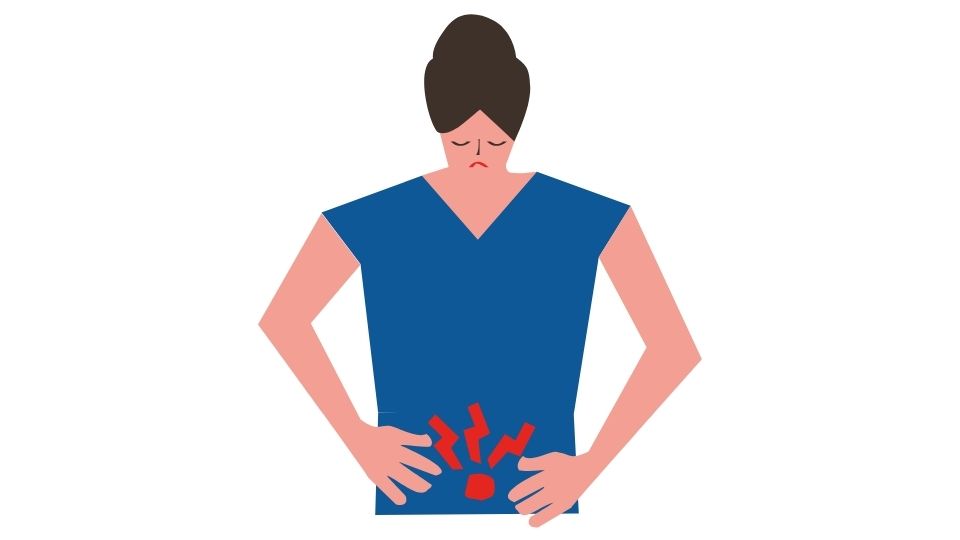Ever felt like your body’s playing by a whole different set of rules? If you have PCOS, you’re nodding your head right now.
When it comes to weight management with PCOS, the game is rigged against you. Your hormones are out of whack, insulin’s not behaving, and those stubborn pounds seem to have super glue attached to them.
But here’s the thing – tracking what you eat might just be the secret weapon you need. Not because it’s magic, but because it gives you actual data about what’s going into your body (instead of just guessing and hoping for the best).
Let’s dive into why meal tracking matters for PCOS weight loss, which tools actually help, and how to make this habit stick without driving yourself crazy.

PCOS and Weight: It’s Complicated
PCOS isn’t just about cysts on your ovaries (though that’s literally in the name). It’s a whole-body hormonal party where nobody’s having fun.
The weight gain that often comes with PCOS isn’t just about willpower or laziness. Your body is dealing with:
- Insulin resistance (your cells basically ignoring insulin’s signals)
- Higher testosterone levels (hello, unwanted hair and acne)
- Chronic inflammation (your body’s constantly in fight mode)
Research shows that even a modest 5-10% weight loss can dramatically improve your symptoms, regulate your periods, and even boost fertility. That’s the good news!
But the frustrating part? Losing weight with PCOS is like trying to run uphill while everyone else gets to run downhill.
What Actually Works: Food Strategies for PCOS

Before we talk tracking, let’s get clear on what actually helps with PCOS weight management:
1. Protein Is Your BFF
Higher protein intake can help suppress those pesky androgens and improve insulin sensitivity. Studies show diets with more than 25% protein can lead to significant improvements in both weight and hormone levels.
Practical translation: Make sure every meal includes some protein source – eggs, fish, chicken, tofu, legumes, you get the idea.
2. Fiber Is Your Other BFF
Aim for about 25 grams of fiber daily. Why? It helps:
- Slow down digestion (keeps blood sugar stable)
- Feed your good gut bacteria
- Keep you feeling full longer
Think vegetables, fruits, beans, and whole grains. Your digestion and hormones will thank you.
3. Don’t Fear Fat (The Right Kind)
Healthy fats from avocados, olive oil, nuts, and seeds actually support hormone production and help you feel satisfied. The “fat makes you fat” myth is so 1990s.
4. Carbs: Choose Wisely, Not None
Low-carb diets often help with PCOS, but no-carb is unnecessary and hard to maintain. Focus on complex carbs with fiber that won’t spike your blood sugar (sweet potatoes, quinoa, oats).
Why Tracking Your Meals Actually Matters
So why bother writing down what you eat? Because our brains are terrible at remembering and our eyes are terrible at portion sizes.
The Magic of Food Tracking for PCOS
It shows patterns you’d never notice otherwise
Maybe dairy triggers your acne. Perhaps those “small” afternoon snacks add up to 500 calories. You won’t know unless you track.It keeps you honest with yourself
That bite of your kid’s mac and cheese? The extra splash of olive oil? The three handfuls of chips? When you track, you see the whole picture.It connects what you eat with how you feel
Notice that your energy crashes after certain meals? Or that you feel great after others? Tracking helps you make these connections.
Meal Tracking Tools That Don’t Suck

Let’s be real – if tracking is annoying, you won’t stick with it. Here are some options that make it easier:
MealByMeal: Text-Based Simplicity
MealByMeal lets you simply text what you eat and handles the calorie and macro counting for you. No complicated app interfaces, no searching through massive databases – just text and go.
Perfect for: People who hate opening apps and navigating complicated interfaces.
PCOS Tracker App: Beyond Just Food
The PCOS Tracker App was made specifically for women with PCOS and tracks not just food but also:
- Weight changes
- Water intake
- Compatible with different diet approaches (keto, paleo, etc.)
- PCOS symptoms
Perfect for: Women who want to connect all their PCOS symptoms with their diet.
Cysterhood: Community + Tracking
Cysterhood combines meal tracking with a supportive community of other women with PCOS. It includes:
- Weekly meal plans
- Gluten and dairy-free recipes
- Workout routines designed for PCOS
- A community forum
Perfect for: Women who want more guidance and support, not just tracking.
Making Meal Tracking Work For You

Step 1: Have a Clear “Why”
Are you tracking to:
- Lose weight?
- Find food sensitivities?
- Improve energy levels?
- Balance hormones?
Getting clear on your goal makes tracking more meaningful.
Step 2: Start Simple
Don’t try to track every micronutrient from day one. Begin with just writing down what you eat, then gradually add more detail as you get comfortable.
Step 3: Find Your Pattern
Some people do best tracking as they go throughout the day. Others prefer to set aside 5 minutes each evening. Research shows the most successful trackers find a consistent time that works for them.
Step 4: Don’t Make Perfect the Enemy of Good
Missed a day? Forgot to log a meal? No big deal. Jump back in without guilt. Consistency over time matters more than perfection.
Beyond Just Tracking: The Complete Picture

Meal tracking is powerful, but it works even better when combined with:
Regular Movement (But Not Excessive Exercise)
With PCOS, moderate exercise typically works better than high-intensity workouts that can stress your already-stressed body. Walking, swimming, yoga, and strength training are all excellent options.
Stress Management Is Non-Negotiable
High stress = high cortisol = worsened insulin resistance. Find what helps you decompress, whether it’s meditation, reading, time in nature, or evidence-based relaxation techniques.
Sleep Quality Matters As Much As Food
Poor sleep messes with your hunger hormones and insulin sensitivity. Prioritize 7-8 hours of quality sleep as part of your PCOS management plan.
PCOS weight management isn’t just about willpower or calorie math. It’s about understanding your unique body and working with it, not against it. Meal tracking gives you the data to make informed decisions and see what actually works for YOU.
Remember, progress isn’t always linear. Some weeks will be better than others. But with consistent tracking and small adjustments, you can find your path to feeling better and managing your PCOS symptoms more effectively.




Leave a Reply